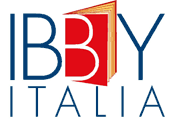
Abbiamo parlato spessissimo in questo blog di nativi e immigranti digitali. Ora il papà di questa definizione, Marc Prensky, ci ripensa e passa da una distinzione puramente generazionale a una di tipo differente basata sull’uso critico e consapevole che lo porta a parlare di saggi digitali (non vi sembra pane per bibliotecari questo?)
Il ripensamento di Prensky arriva a 9 anni dalla pubblicazione del suo articolo originale e vuole adeguare la dicotomia nativi/immigranti a un contesto tecnologico profondamente mutato
Alcuni spunti dall’articolo:
Digital wisdom is atwofold concept, referring both to wisdom arising from the use of digital technology to access cognitivepower beyond our innate capacity and to wisdom in the prudent use of technology to enhance ourcapabilities […]
Technology alone will not replace intuition, goodjudgment, problem-solving abilities, and a clear moral compass. But in an unimaginably complex future,the digitally unenhanced person, however wise, will not be able to access the tools of wisdom that will beavailable to even the least wise digitally enhanced human.Moreover, given that the brain is now generally understood to be highly plastic, continually adapting to theinput it receives, it is possible that the brains of those who interact with technology frequently will berestructured by that interaction. The brains of wisdom seekers of the future will be fundamentally different,in organization and in structure, than our brains are today.[…]Homo sapiens digital, then, differs from today’s human in two key aspects: He or she accepts digitalenhancement as an integral fact of human existence, and he or she is digitally wise, both in the consideredway he or she accesses the power of digital enhancements to complement innate abilities and in the wayin which he or she uses enhancements to facilitate wiser decision making. Digital wisdom transcends thegenerational divide defined by the immigrant/native distinction
E ancora nell’interessantissimo paragrafo Being digital wise:
So what constitutes digital wisdom? What habits do the digitally wise use to advance their capabilities andthe capabilities of those around them? Can digital wisdom be taught?[…]
Digital wisdom can be, and must be, learned and taught. As we offer more courses in digitalliteracy, we should also offer students guidance in developing digital wisdom. Parents and educators aredigitally wise when they recognize this imperative and prepare the children in their care for thefuture—educators by letting students learn by using new technologies, putting themselves in the role ofguides, context providers, and quality controllers, and parents by recognizing the extent to which the futurewill be mediated by technology and encouraging their children to use digital technology wisely.The digitally wise distinguish between digital wisdom and mere digital cleverness, and they do their best toeradicate digital dumbness when it arises. They know that just knowing how to use particulartechnologies makes one no wiser than just knowing how to read words does. Digital wisdom means notjust manipulating technology easily or even creatively; it means making wiser decisions because one isenhanced by technology.[…]
Being digitally wise involves not only enhancing our natural capabilities with existing technologies but alsocontinuously identifying additional areas where our natural human tools—even when they are developed toa very high level—cannot do the job unaided. As new digital tools appear, especially ones that take hold ina strong way, the digitally wise seek them out actively. They investigate and evaluate the positives as wellas the negatives of new tools and figure out how to strike the balance that turns tools into wisdomenhancers. The digitally wise also realize that the ability to control digital technology, to bend it to theirneeds, is a key skill in the digital age. As a result, they are interested in programming, in the broadestsense of the word, that is, in making machines do what people want them to do.
Con una conclusione che piace sicuramente ai bibliotecari e a coloro che si occupano di information e media literacy
I do not think technology is wise in itself (although some day it may be) or that human thinking is no longernecessary or important. It is through the interaction of the human mind and digital technology that thedigitally wise person is coming to be. I believe it is time for the emerging digitally wise among us, youthand adults alike, to embrace digital enhancement and to encourage others to do so. With our eyes wideopen to enhancement’s potential harm as well as its benefits, let us bring our colleagues, students,teachers, parents, and peers to the digital wisdom of the twenty-first century.
Alcune note a margine: come vedrete dalla bibliografia l’eco dell’articolo è stato notevole, tuttavia ve ne consigliamo la lettura integrale non solo perchè, da bravi bibliotecari, peschiamo alla fonte primaria, quanto perché negli articoli viene enfatizzato il ripensamento di Prensky che sicuramente c’è stato ed è ben motivato nel suo scritto, ma ci sono anche tante altri aspetti sicuramente rilevanti. Ci piacciono tanto gli accenni alle neuroscienze, alla difficoltà di prospettare un’educazione per un cervello che sappiamo sempre più plastico, in un crocevia di competenze che spazia da quelle biblioteconomiche a quelle pedagogiche a competenze di tipo informatico e scientifico puro. Quante cose bisogna sapere al giorno d’oggi per occuparsi di ragazzi in biblioteca? E quante e diverse competenze entrano in gioco nella figura del bibliotecario oggi?
Un minimo di bibliografia:
[Via: CiberNewsletter, dicembre 2010]








